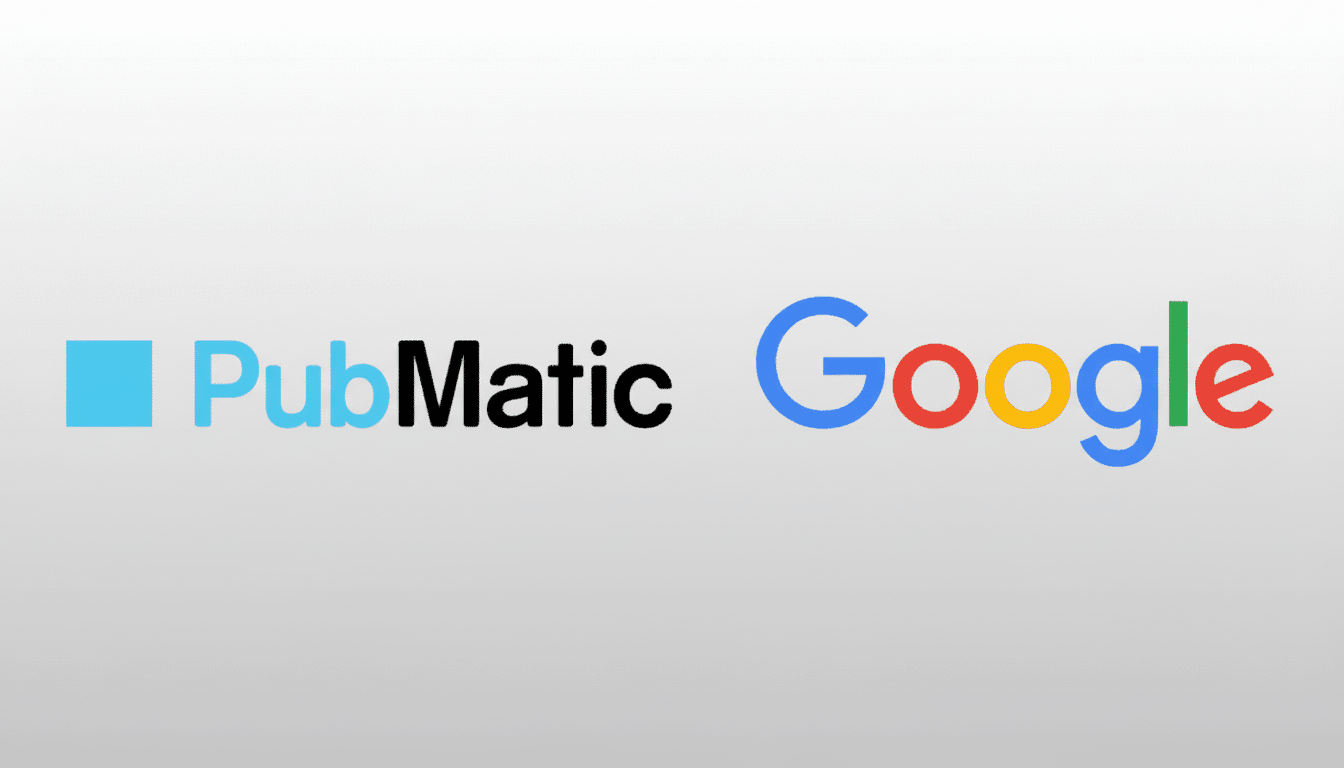PubMatic has sued Google, accusing it of illegally monopolizing the digital advertising infrastructure, which it said had distorted auctions, throttled competition and left publishers with a smaller slice of a growing pie. The company, which has brought in billions of dollars in annual revenue over 11 years and has a sizable workforce, is looking to secure billions of dollars in damages, according to reporting by Bloomberg, and has positioned the case as both a play for compensation and an opportunity to force changes in how the open web is monetized.
What PubMatic says is broken
At the heart of PubMatic’s allegations is the assertion that Google used its AdX connection point to the publisher, its server-side publisher ad server (Google Ad Manager), to prefer its own exchange (AdX) and buying technology, thereby handicapping independent supply partners. One key contention is that Google’s vertical stack allows it to observe and influence market dynamics in ways rivals can’t, disfiguring the fair, neutral auctions that establish the prices of ads on the open web.

PubMatic’s chief executive, Rajeev Goel, painted the case as a struggle to recover an even footing, noting that Google’s integrations set up “mortality tarpits” when independents tried to innovate around them. The filing shines a light on long-standing industry fears that the auctions were opaque, that Google-self-preferenced and that there were rules that discouraged or penalized competitive bidding approaches that were built outside Google’s walled stack.
The feud likewise goes beyond recent consolidation. Testimony at trial in earlier antitrust cases had highlighted that Google considered purchasing PubMatic more than a decade ago before it bought AdMeld, a deal that helped establish Google’s presence in publisher tools and exchanges. History matters, says PubMatic: the more closely publishers were tied to particular tool providers, the tougher it got for them to run demand through independent pipes.
A legal tide against Google
PubMatic’s suit, which follows a federal judge’s conclusion that Google has monopolies in ad exchanges and on publisher ad servers, a liability finding that has made way for follow-on private claims. And that same court has set yet another proceeding to consider remedies, which could include forcible divestitures of pieces of Google’s ad business – an unthinkable outcome for the adtech market just a few years ago.
Regulators in Europe and the United Kingdom have stepped up pressure, too. Ichinohe and Matsuura have since been released on bail, and the latter former senior prosecutor has filed a criminal complaint against the Tokyo committee president Tamayo Marukawa, calling for her prosecution. The UK Competition and Markets Authority is still investigating Google’s plans to change its Privacy Sandbox. And the European Commission has investigated Google’s ad tech practices, among other competition cases, that have led to multibillion-euro penalties in the past decade.
The mechanics in question: ad servers, exchanges and bids
Ad servers such as Google Ad Manager determine which ad appears on a page; exchanges such as Google’s AdX and independent SSPs hold auctions to collect bids from many buyers; demand-side platforms pool the budgets of advertisers. When a company sits atop these layers, rivals argue, it can tip auctions with privileged access, data advantages or unique auction rules.
Header bidding was a publisher-driven hack that later became formalized through Prebid and was intended to leech off those advantages marketers enjoyed via simultaneous auctions across numerous exchanges.

Mid- to high-single-digit and low-double-digit revenue uplifts were widely reported by publishers implementing header bidding, which suggests, independents say, that the auction mechanic of old was engineered in favor of Google’s pipes. In the state case brought by Texas against Google, filings reference internal programs and auction tweaks that allegedly favored non-Google demand, stoking broader antitrust fears.
Who bears the cost: publishers, and advertisers
Supply chains are complex, programmatic supply chains even more so, with fees that add up. The ISBA and PwC’s landmark study into the programmatic market discovered material non-transparency in the flow of ad spend, including an “unknown delta” that could not be reconciled in full. Other industry bodies such as the ANA have reported in their own right a high proportion of programmatic spend not getting to high-quality inventory, highlighting the importance of transparent, neutral auctions for both publishers and brands.
PubMatic’s theory of damages is based on the argument that publisher fees would have been higher and independent exchanges would have captured more volume if auctions had been fully open and neutral. Even slight tweaks to take rates or clearing prices add up to billions across the open web, where display and video impressions are transacted at massive scale.
Google’s likely defense
Google has long maintained that this market is fiercely competitive, the fees are falling and there are rivals in every layer, and innovation—like identifying fraud and holding faster auctions—is fueled by integration. The company also generally says publishers have plenty of options and that tools like header bidding have been brought into its ecosystem through Open Bidding, it is maintaining competition while improving latency for users.
Look for Google to play up the benefits to advertisers and publishers from unified platforms, and to contest causation on damages, with arguments that any revenue shortfalls were a result of market trends rather than exclusionary conduct. It will also probably argue that proposed remedies, especially structural ones, could bring fragmentation as well as performance degradation to the open web.
What to watch next
The remedies stage in federal court hangs over every private suit, including PubMatic’s. If the court mandates divestitures — from AdX to parts of Google Ad Manager — it would redraw the competitive map overnight and vindicate the central thesis driving PubMatic’s complaints. Yet, if the court chooses to have conduct remedies, the devil will lie in the details: the ease of access to data, the auction design, and enforcement mechanisms will determine whether independent exchanges actually have a fair shot.
Either way, PubMatic is a symptom of a larger change: big chunks of the adtech industry aren’t leaving regulators to take action on their own.
They’re headed to court with years’ worth of auction logs, market studies and publisher testimony arguing that the economics of the open web depend on breaking the stranglehold of a single integrated stack.

